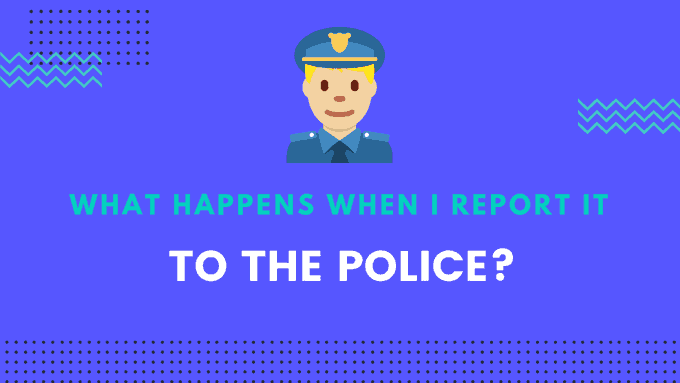Good afternoon, friends! This afternoon we will discuss Policing Domestic Disputes. I hope you'll join.
First, let's tackle some Facts / Myths about Intimate Violence ...
#ProfessorFurlowWhiteBoards #PolicingDomesticDisputes
First, let's tackle some Facts / Myths about Intimate Violence ...
#ProfessorFurlowWhiteBoards #PolicingDomesticDisputes
Domestic abuse is a crime of the poor and uneducated
#CRJ201 #OrderMaintenance #PolicingDomesticDisputes
#CRJ201 #OrderMaintenance #PolicingDomesticDisputes
It can't be domestic violence, it's only your first date
#CRJ201 #OrderMaintenance #PolicingDomesticDisputes
#CRJ201 #OrderMaintenance #PolicingDomesticDisputes
If the victim doesn't leave, the situation can't be THAT bad
#CRJ201 #OrderMaintenance #PolicingDomesticDisputes
#CRJ201 #OrderMaintenance #PolicingDomesticDisputes
Victims often exaggerate abuse as a retaliatory tactic
#CRJ201 #OrderMaintenance #PolicingDomesticDisputes
#CRJ201 #OrderMaintenance #PolicingDomesticDisputes
The survivor knew what they were getting into at the start of the relationship
#CRJ201 #OrderMaintenance #PolicingDomesticDisputes
#CRJ201 #OrderMaintenance #PolicingDomesticDisputes
The CDC reports that over 1 in 3 women and about 1 in 3 men in the United States experience intimate partner violence in their lifetime
#CRJ201 #OrderMaintenance #PolicingDomesticDisputes
#CRJ201 #OrderMaintenance #PolicingDomesticDisputes
Those who identify as nonbinary or LGBTQ+ are often even more likely to experience abuse, which is compounded by homophobia and transphobia
#CRJ201 #OrderMaintenance #PolicingDomesticDisputes
#CRJ201 #OrderMaintenance #PolicingDomesticDisputes
Police Response to Domestic Dispute Calls can be a risk to the officer's safety
#CRJ201 #OrderMaintenance #PolicingDomesticDisputes
#CRJ201 #OrderMaintenance #PolicingDomesticDisputes
The goal is to highlight an important topic that often gets overlooked during the traditional semester.
If you, or someone you know, is experiencing violence, please reach out, you are not alone
thehotline.org/help/
#CRJ201 #OrderMaintenance #PolicingDomesticDisputes


If you, or someone you know, is experiencing violence, please reach out, you are not alone
thehotline.org/help/
#CRJ201 #OrderMaintenance #PolicingDomesticDisputes



Like many of us, I wish we were in-person for this topic, but I want to demonstrate that online discussions can be informative, interactive, and hopefully inspiring to delve further into key topics
#CRJ201 #OrderMaintenance #PolicingDomesticDisputes
#CRJ201 #OrderMaintenance #PolicingDomesticDisputes
We will start with some of the facts about domestic violence, then look at police response, then lastly examine how the covid-19 epidemic has had an impact
#CRJ201 #OrderMaintenance #PolicingDomesticDisputes
#CRJ201 #OrderMaintenance #PolicingDomesticDisputes
Family violence shares some of the characteristics of other forms of violence, yet the intimacy of marital, co-habitational, or parent-child relationships sets family violence apart
#CRJ201 #OrderMaintenance #PolicingDomesticDisputes
#CRJ201 #OrderMaintenance #PolicingDomesticDisputes

The physical and emotional harm inflicted in violent episodes tends to be spread over longer periods of time and to have a more lasting impact on all members of the living unit
#CRJ201 #OrderMaintenance #PolicingDomesticDisputes
#CRJ201 #OrderMaintenance #PolicingDomesticDisputes

Relationship violence can begin in childhood, and can occur from adolescence into adulthood.
#CRJ201 #OrderMaintenance #PolicingDomesticDisputes
#CRJ201 #OrderMaintenance #PolicingDomesticDisputes

Some experts have found that domestic violence is learned and transmitted from one generation to the next
#CRJ201 #OrderMaintenance #PolicingDomesticDisputes
#CRJ201 #OrderMaintenance #PolicingDomesticDisputes

Researchers agree that assaultive behavior within the family is a highly under-reported crime
#CRJ201 #OrderMaintenance #PolicingDomesticDisputes

#CRJ201 #OrderMaintenance #PolicingDomesticDisputes


Evolving attitudes about domestic violence has led to new laws & policies, including increased criminal penalties, the development of intervention & treatment programs for batterers, & changes in police department policies
#CRJ201 #OrderMaintenance #PolicingDomesticDisputes
#CRJ201 #OrderMaintenance #PolicingDomesticDisputes

As you can see, even in THIS discussion, I've used several different terms to refer to violence within a family unit
#CRJ201 #OrderMaintenance #PolicingDomesticDisputes
#CRJ201 #OrderMaintenance #PolicingDomesticDisputes
There is much confusion about the police response to domestic incidents, in part because many people fail to distinguish between disputes and violent incidents
#CRJ201 #OrderMaintenance #PolicingDomesticDisputes
#CRJ201 #OrderMaintenance #PolicingDomesticDisputes

The police handle many situations that are labeled disturbances. These include bar fights, arguments between neighbors, and many other kinds of problems
#CRJ201 #OrderMaintenance #PolicingDomesticDisputes
#CRJ201 #OrderMaintenance #PolicingDomesticDisputes

Today we want to define Domestic Disturbance as:
Disturbance between two or more people engaged in an intimate relationship that has escalated to a degree involving actual or threatened violence
#CRJ201 #OrderMaintenance #PolicingDomesticDisputes
Disturbance between two or more people engaged in an intimate relationship that has escalated to a degree involving actual or threatened violence
#CRJ201 #OrderMaintenance #PolicingDomesticDisputes

Intimate relationships include married or divorced couples, live-in lovers, former couples, or people who are on a first date
#CRJ201 #OrderMaintenance #PolicingDomesticDisputes
#CRJ201 #OrderMaintenance #PolicingDomesticDisputes

Many domestic violence survivors do not call the police. NCVS data show that female victims of violence called the police only about 62 percent of the time
#CRJ201 #OrderMaintenance #PolicingDomesticDisputes
#CRJ201 #OrderMaintenance #PolicingDomesticDisputes

The reporting of domestic violence varies by the status of the victim
#CRJ201 #OrderMaintenance #PolicingDomesticDisputes
#CRJ201 #OrderMaintenance #PolicingDomesticDisputes

THINKING CHALLENGE: Why don't victims call the police?
#CRJ201 #OrderMaintenance #PolicingDomesticDisputes
#CRJ201 #OrderMaintenance #PolicingDomesticDisputes
There are several reasons survivors of domestic violence do not call the police
#CRJ201 #OrderMaintenance #PolicingDomesticDisputes
#CRJ201 #OrderMaintenance #PolicingDomesticDisputes

According to NCVS data:
~ most did not call the police because they regarded it as a private or trivial matter.
~ thought it was not important to the police,
~ feared reprisal, and
~ to protect the offender
#CRJ201 #OrderMaintenance #PolicingDomesticDisputes
~ most did not call the police because they regarded it as a private or trivial matter.
~ thought it was not important to the police,
~ feared reprisal, and
~ to protect the offender
#CRJ201 #OrderMaintenance #PolicingDomesticDisputes

According to the National Domestic Violence Hotline, 13.8 percent of men have been victims of severe physical violence from their intimate partner, however are MUCH less likely to report the offense
#CRJ201 #OrderMaintenance #PolicingDomesticDisputes
#CRJ201 #OrderMaintenance #PolicingDomesticDisputes

Police officers exercise great discretion in handling domestic disturbances:
~Arrest
~Mediation
~Separating the parties
~Referral to a social service agency
~No action at all
#CRJ201 #OrderMaintenance #PolicingDomesticDisputes
~Arrest
~Mediation
~Separating the parties
~Referral to a social service agency
~No action at all
#CRJ201 #OrderMaintenance #PolicingDomesticDisputes

THINKING CHALLENGE: What is the MOST common police response to domestic disturbances?
#CRJ201 #OrderMaintenance #PolicingDomesticDisputes
#CRJ201 #OrderMaintenance #PolicingDomesticDisputes
THINKING CHALLENGE: What SHOULD BE the police response to domestic disturbances?
#CRJ201 #OrderMaintenance #PolicingDomesticDisputes
#CRJ201 #OrderMaintenance #PolicingDomesticDisputes
According to Mastrofski, Snipes, and Supina’s study of police encounters found, rather than make an arrest, police officers often ask a person to cease illegal behavior
#CRJ201 #OrderMaintenance #PolicingDomesticDisputes
#CRJ201 #OrderMaintenance #PolicingDomesticDisputes

Studies have found arrest rates in domestic disturbance calls ranging from a high of about 40 percent of all incidents to a low of about 12 percent
#CRJ201 #OrderMaintenance #PolicingDomesticDisputes
#CRJ201 #OrderMaintenance #PolicingDomesticDisputes

Mediation includes a variety of verbal responses:
~talking sympathetically,
~talking in an unsympathetic or hostile manner,
~asking the complainant what they would like done, ~ordering the parties to be quiet,
~threatening arrest
#PolicingDomesticDisputes
~talking sympathetically,
~talking in an unsympathetic or hostile manner,
~asking the complainant what they would like done, ~ordering the parties to be quiet,
~threatening arrest
#PolicingDomesticDisputes

THINKING CHALLENGE: If you are a legal resident of the home, can the police require you to leave?
#CRJ201 #OrderMaintenance
#PolicingDomesticDisputes
#CRJ201 #OrderMaintenance
#PolicingDomesticDisputes
Officers often separate the parties to a dispute by asking one of them to leave the premises. If a person is the legal resident of the house or apartment, the police have no legal right to force them to leave
#CRJ201 #OrderMaintenance
#PolicingDomesticDisputes
#CRJ201 #OrderMaintenance
#PolicingDomesticDisputes

Police officers may also refer one or more of the parties to the dispute to social services: marriage counseling, alcohol or drug treatment, or legal aid for those contemplating separation, divorce, and other legal matters
#CRJ201 #OrderMaintenance
#PolicingDomesticDisputes
#CRJ201 #OrderMaintenance
#PolicingDomesticDisputes

Although many departments provide officers with a list of social agencies, a police officer has no legal power to compel someone to seek professional help
#CRJ201 #OrderMaintenance
#PolicingDomesticDisputes
#CRJ201 #OrderMaintenance
#PolicingDomesticDisputes

Police Have a New Tool in Their Arsenal: Mental-Health Professionals: wsj.com/articles/polic…
#CRJ201 #OrderMaintenance
#PolicingDomesticDisputes
#CRJ201 #OrderMaintenance
#PolicingDomesticDisputes

THINKING CHALLENGE: Why don't domestic violence victims just leave?
#CRJ201 #OrderMaintenance
#PolicingDomesticDisputes
#CRJ201 #OrderMaintenance
#PolicingDomesticDisputes
Why domestic violence victims don't leave, Leslie Morgan Steiner explains ...
@TEDTalks
@TEDNews
#CRJ201 #OrderMaintenance
#PolicingDomesticDisputes
@TEDTalks
@TEDNews
#CRJ201 #OrderMaintenance
#PolicingDomesticDisputes
Historically, several factors have discouraged officers from making arrests in domestic violence situations
#CRJ201 #OrderMaintenance
#PolicingDomesticDisputes
#CRJ201 #OrderMaintenance
#PolicingDomesticDisputes

First, some officers regard domestic violence as a private matter—something to be dealt with by the family
#CRJ201 #OrderMaintenance
#PolicingDomesticDisputes
#CRJ201 #OrderMaintenance
#PolicingDomesticDisputes

Second, many officers believe that domestic violence arrests are often dismissed because the victim refuses to pursue the case
#CRJ201 #OrderMaintenance
#PolicingDomesticDisputes
#CRJ201 #OrderMaintenance
#PolicingDomesticDisputes

Third, victims of domestic violence might not have called the police themselves, often hoping for police to do something other than make an arrest
#CRJ201 #OrderMaintenance
#PolicingDomesticDisputes
#CRJ201 #OrderMaintenance
#PolicingDomesticDisputes

Fourth, an arrest is work, it requires the officer to perform many tasks. An arrest also raises the visibility of the officer’s work, bringing it to the attention of other officials who might find it improper
#CRJ201 #OrderMaintenance
#PolicingDomesticDisputes
#CRJ201 #OrderMaintenance
#PolicingDomesticDisputes

Many officers do consider responding to domestic disturbances as potentially their most dangerous calls
#CRJ201 #OrderMaintenance
#PolicingDomesticDisputes
#CRJ201 #OrderMaintenance
#PolicingDomesticDisputes

A 27-Year Police Veteran on Why Domestic Violence Calls Pose the Greatest Danger for Cops
thetrace.org/2016/08/domest…
#CRJ201 #OrderMaintenance
#PolicingDomesticDisputes
thetrace.org/2016/08/domest…
#CRJ201 #OrderMaintenance
#PolicingDomesticDisputes
A revolution in public attitudes toward domestic violence began in the 1970s. The women’s movement identified spouse abuse as a major problem and demanded protection for victimized women
#CRJ201 #OrderMaintenance
#PolicingDomesticDisputes
#CRJ201 #OrderMaintenance
#PolicingDomesticDisputes

In two lawsuits, women’s groups in New York City & Oakland sued the local police departments, charging that they had denied women equal protection of the law by failing to arrest persons who had committed domestic assaults
#MoraineValley #PolicingDomesticDisputes
#MoraineValley #PolicingDomesticDisputes

The Minneapolis Domestic Violence Experiment (1981-1982) sought to determine the relative deterrent effect of arrest, mediation, and separation in misdemeanor domestic violence incidents
#MoraineValley #PolicingDomesticDisputes
#MoraineValley #PolicingDomesticDisputes

The Minneapolis study found that arrest produced lower rates of repeat violence than separation or mediation.
#MoraineValley #PolicingDomesticDisputes
#MoraineValley #PolicingDomesticDisputes

Some commentators have warned that mandatory arrest may discourage calls by persons who only want the police to calm the immediate situation
#MoraineValley #PolicingDomesticDisputes
#MoraineValley #PolicingDomesticDisputes

Second, mandatory arrest is likely to have a disproportionate impact on lower-class men, and poor African American men in particular
#MoraineValley #PolicingDomesticDisputes
#MoraineValley #PolicingDomesticDisputes

How Police Are Trained to Respond to Domestic Violence
domesticshelters.org/articles/legal…
#MoraineValley #PolicingDomesticDisputes
domesticshelters.org/articles/legal…
#MoraineValley #PolicingDomesticDisputes
In addition to mandatory arrest policies, many departments have added special training for their officers in how to handle family violence situations
#MoraineValley #PolicingDomesticDisputes
#MoraineValley #PolicingDomesticDisputes

Response Partnerships. Response partnerships are characterized by two entities, usually law enforcement and service providers, combining efforts to respond to individual cases
#MoraineValley #PolicingDomesticDisputes
#MoraineValley #PolicingDomesticDisputes

The Domestic Violence Enhanced Response Team (DVERT)
multco.us/dv/domestic-vi…
#MoraineValley #PolicingDomesticDisputes
multco.us/dv/domestic-vi…
#MoraineValley #PolicingDomesticDisputes

The #Covid19 pandemic has created numerous new challenges for law enforcement, especially in regards to domestic disputes
#MoraineValley #PolicingDomesticDisputes
#MoraineValley #PolicingDomesticDisputes

Victims of domestic violence may face an increase in violence & greater barriers to accessing help as stay at-home orders force them to spend more time with their abuser & physical distancing orders isolate them from support
#MoraineValley #PolicingDomesticDisputes
#MoraineValley #PolicingDomesticDisputes

The future of police policy toward domestic disturbances and domestic violence is not clear. Mandatory arrest policies remain extremely popular, but the full impact of these policies is uncertain
#MoraineValley #PolicingDomesticDisputes
#MoraineValley #PolicingDomesticDisputes

Supporting Victims of Domestic Violence during the COVID-19 Pandemic as recommended by @TheIACP
theiacp.org/resources/docu…
#MoraineValley #PolicingDomesticDisputes
theiacp.org/resources/docu…
#MoraineValley #PolicingDomesticDisputes
There is SO much more to talk about, but I like keeping our discussions to about an hour.
I look forward to suggestions / corrections / input!
#CRJ201 #MoraineValley #PolicingDomesticDisputes
I look forward to suggestions / corrections / input!
#CRJ201 #MoraineValley #PolicingDomesticDisputes
Be sure to follow our #AskTwoFox15 project, get your questions in for this week. See you next week!
#CRJ201 #MoraineValley #PolicingDomesticDisputes
#CRJ201 #MoraineValley #PolicingDomesticDisputes
• • •
Missing some Tweet in this thread? You can try to
force a refresh
















